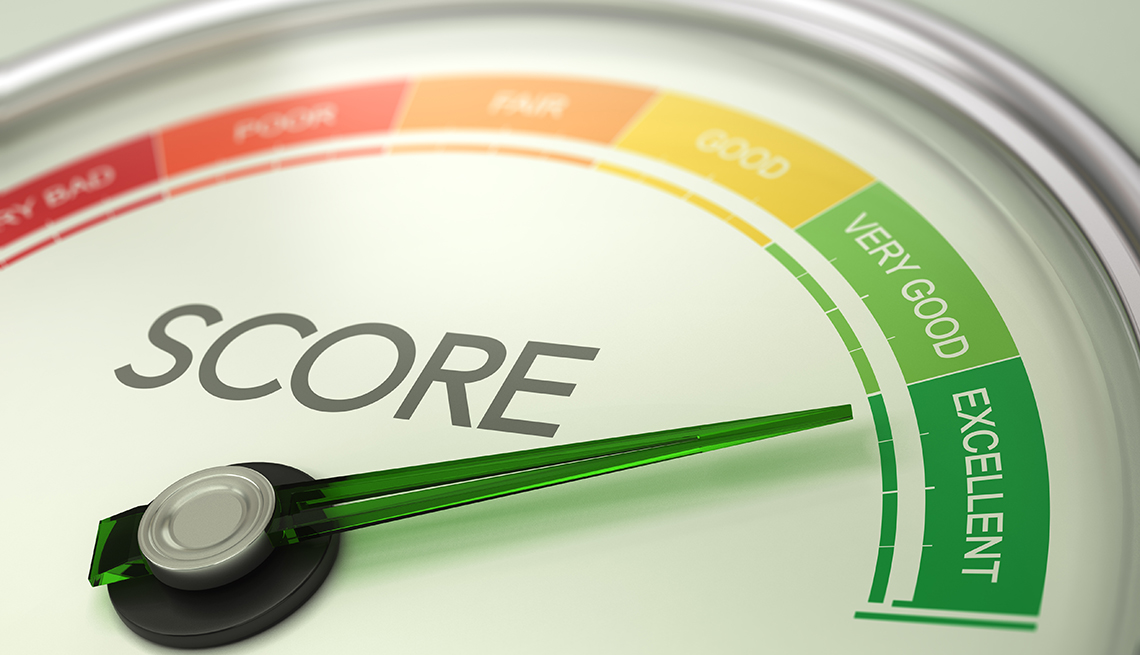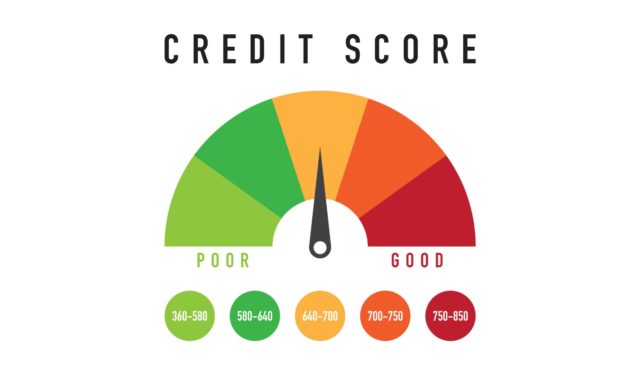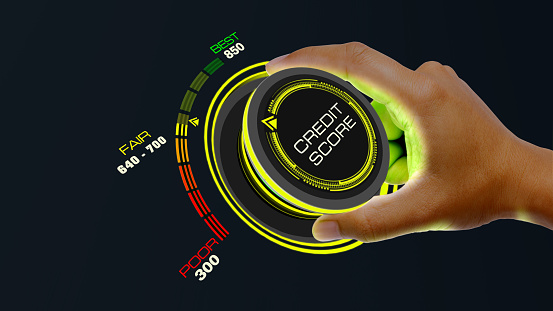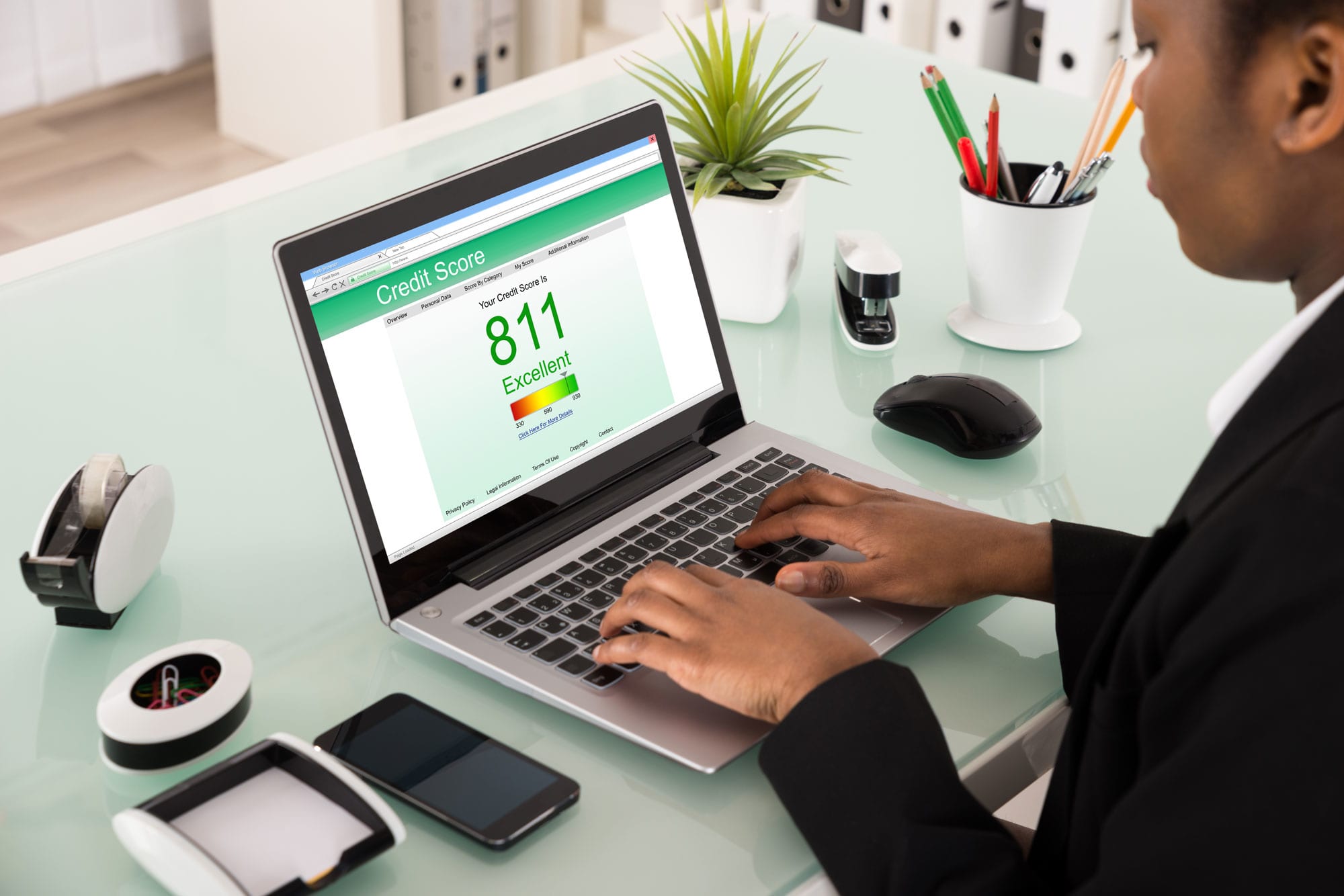One of those issues that can have a variety of expensive and annoying effects on your life is bad credit score. Your credit history might be a factor in a landlord’s decision to rent to you. It may be used by employers to make employment choices.
In the majority of states, the cost of your auto insurance is also influenced by your credit score. As you can see, having a low credit score entails much more than just having to pay higher loan interest rates. Positively, everyone may raise their credit score.
But in order to achieve that, you must first comprehend the root causes of bad credit as well as the steps necessary to improve your credit score.
What does a ”Bad Credit Score” mean?
According to the FICO and VantageScore systems, bad credit ratings range from 300 to 579 and 300 to 600, respectively. The most used scoring method is FICO, while VantageScore is the second most utilized. It’s important to know that there are many scoring systems and that your credit score is a number between 300 and 850 if you’re unfamiliar with credit ratings.
You won’t have many credit card or loan possibilities if you have a bad credit score. You’ll probably only be eligible for credit cards and loans that are designed for people with bad credit. Fair credit follows bad credit, and it is defined as having a FICO® Score between 580 and 669 and a VantageScore between 601 and 660. Once you have acceptable credit, you can be authorized for more financial items, but you will still have a smaller choices than people with strong or exceptional credit.
How to Check your Credit Score?
If you want to keep track of your financial situation and take action to repair your credit, you must be aware of your credit score. Additionally, when you start to evaluate card alternatives, it might assist you decide which credit card to apply for. The good news is that checking your credit score is easy.

Utilizing a free credit monitoring and credit score service is one approach to achieve this. To access your score, you must register for one of these services and log in. Examples include Discover® Credit card and Experian CreditWorksSM Basic. You can get a FICO® Score by using these services, which are free to use. To be clear, Discover doesn’t demand that you have a card to utilise their service. Knowing your score will help you better understand your financial situation and make more sensible actions that will help you raise your credit score.
Factors causing bad credit
Bad credit may result from a number of circumstances. Here are a few instances:
Bankruptcy
One of the biggest contributors to bad credit is whether you’ve declared bankruptcy or intend to do so. This bad mark will remain on your credit for seven to ten years, depending on the type of bankruptcy you filed for. It’s crucial to take this into account before declaring bankruptcy.
Late payments and missing payments
Your credit score is 35 percent based on your payment history. Bad credit can result from missing or making late payments. If you’ve already committed payment errors, you can fix them going forward. Pay your payments in whole and on time if you want to build your credit.
Credit use is high
How much of your available credit is being used is shown by your credit usage ratio. Your credit score may be impacted if you have a high credit usage rate (using more than 30% of your entire credit line). If you want to improve your credit score, it’s advisable to utilise less of your available credit. Utilizing a lesser amount of your available credit indicates that you have a smaller overall debt load.
Being credit-insufficient or barely credit
Bad credit can result from having little to no credit history, which can be a contributing factor. It is in your best interest to start establishing credit right away since creditors will take notice as your credit history grows in duration.
What consequences might bad credit have?
The primary effect of having bad credit is that you’re considerably more likely to have your application for anything that requires a credit check rejected.
Examples comprise:
- Credit cards
- Individual loans
- Car loans
- Mortgages
- Rental applications for homes
The terms will be worse even if you are accepted than they would be for a borrower with strong or exceptional credit. You could obtain a credit card, but it won’t provide many perks or incentives. You may rent from a landlord if you put down a significantly higher security deposit. With excellent credit, you would pay $9,256 less in interest overall over the course of the loan, saving you $155 per month. The most obvious consequences of having bad credit are those, but they are by no means the only ones.
Here are some other difficulties you could face:
- A lot of utility companies demand security deposits from new clients with bad credit.
- The majority of jurisdictions permit auto insurance providers to increase costs for drivers with worse credit histories.
- Before choosing whether to extend you an employment offer, employers may do a credit check.
A bad credit history can it be removed?
A bad credit history cannot be entirely removed, at least not fast.
However, you do have a few choices when it comes to addressing certain worries:
- You have the right to challenge any inaccuracies on your credit report that are harming your credit.
- To do this, get in touch with the three credit bureaus and submit a formal dispute.
- You can utilize an example letter that is available from the Federal Trade Commission.
- Your best option is to mail your letter so you can trace it and have proof that it was delivered.
- It’s worth contacting your creditor to ask for a goodwill adjustment if you have a late payment mark on your credit record and you’ve been a consistent client.
- They could consent to get rid of the late payment mark, which would be good for your credit history.
- You can call to request something, but writing a letter is preferable.
- You have the ability to go into great detail about why your payment was late in a letter.
- If your creditor is unwilling to immediately erase a bad mark but is open to negotiating, you can still do so.
For instance, if you still owe the creditor money, you may inquire about having the bad mark removed in exchange for making an immediate complete payment.
Here are a few methods for clearing up some of your bad credit history. If none of these approaches are successful for you, you’ll need to keep trying to build your credit history via wise financial decisions.
What to look for in a bad credit card Score?

The costs on a credit card for people with bad credit are the most crucial consideration, but you should also look at the APR, the minimum and maximum security deposits, and the expected credit limit.
Each thing is explained below:
Fees
The majority of credit cards have fees, but you don’t want unforeseen costs. You shouldn’t let a credit card’s fees for cash advances or balance transfers deter you from using it because you can simply avoid both by avoiding those kinds of activities. Annual fees, monthly maintenance costs, and any additional expenses that are always charged by the card issuer should cause you to second-guess yourself. These are costs you don’t need, especially coming from a card with presumably little advantages.
APR
Your goal should be to pay off your whole bill debt without ever paying interest. But if you ever need to carry a load, it’s helpful to have a credit card that won’t charge you exorbitant interest. Using this calculator, you can determine your interest payments.
Security deposit minimum/maximum
You should confirm the minimum and maximum security deposit amounts for secured credit cards. Depending on how much money you have set up for a security deposit, you may choose which is most crucial for you. You must make sure you can pay a card’s minimum deposit amount if you don’t have much money saved. You’ll need a card with a large maximum deposit if you have sizable resources and want to pay extra upfront for a greater credit limit.
Credit Ceiling
If at all feasible, look into the credit limitations a card gives. Normally, secured credit cards may provide this information, but occasionally, unsecured cards can as well. You don’t need to have a lot of credit available. However, if your credit limit is too low, it may be challenging to keep your credit use ratio low, which might have an impact on your credit score.
Rewards
Rewards are not often offered by bad credit credit cards, although some are. You may want to give reward cards priority while you weigh your selections because they can be beneficial to you. For the majority of credit cards for people with bad credit that provide rewards potential, you can expect to earn between 1% and 3% in cash back. It’s important to keep in mind that higher rewards credit cards may have a limit on how much you may earn. At a lesser earning rate, you might be able to obtain an endless supply of prizes. Not all cards for those with bad credit give benefits at all.
How to obtain a credit card when you have bad credit
Your greatest option if you need a credit card but have bad credit is to check if you can get prequalified for one. By doing so, you can avoid damaging your credit score by performing a credit check only to learn that you are ineligible for a card. The majority of the big credit card issuers provide prequalification sections on their websites that enable you check offers you’ll probably be accepted for, however it varies on the card issuer. You only need to provide some basic personal data to see if you prequalify.
The majority of card companies want at least some of the following:
- Name in full Address
- born on [date]
Your Social Security number’s final four digits
You’ll see any cards with that card issuer that you have a decent chance of being approved for after providing the necessary information. Please keep in mind that this does not ensure that your application will be accepted. It’s a good idea to spend some time working on boosting your credit if you can’t get prequalified for a credit card for bad credit. Are you prepared to begin? Here’s how to submit a credit card application and be accepted.
How to raise your credit score
With time and work, your credit score may be raised. Keep in mind that there is no quick remedy. Credit cannot be built rapidly, but it may be built up over time. You must comprehend the components that make up your credit score in order to do this. You may raise your credit score and enhance your credit by focusing on each of these.
The five elements that go into determining your FICO® Score are listed below, along with tips on how to excel in each one:
Payment history (35%): Making on-time payments is essential for good credit. While past late payments on your credit report cannot be removed, you can prevent them in the future. Your most important behaviour to improve your credit score is that.
Utilization of credit (30%): Your credit usage is calculated by dividing your total credit amounts by the total credit limit. Your credit usage is 40%, for instance, if you have one credit card with a $200 debt and a $500 credit limit. It’s best if you can maintain this number as low as possible. Always aiming to keep your credit use below 30% is an excellent objective. If yours is greater, you should concentrate on eliminating debt. Creditors would undoubtedly view a borrower who has held a credit card for 20 years as less dangerous than one who has just been using credit for three months.
Length of credit history (15%): Opening a card with no annual charge and keeping it active indefinitely is the greatest method to advance in this field.
Credit mix (10%): Having both revolving credit, such as credit cards, and instalment loans on your credit report rather than just one of the two provides you a modest credit score advantage. You shouldn’t get a loan just to improve your credit, though, as this will only have a little effect on it. Even if you solely use credit cards, you might still have a high credit score.
New credit inquiries (10%): When a credit checks your credit report to determine your eligibility for credit, the query is recorded for two years. Your FICO® Score is only impacted by credit inquiries for a year, though. Although starting a new account won’t have much of an influence on your credit score, you shouldn’t open a lot of new accounts at once either.
Do I need a bank account to receive a credit card?
Applying for a credit card does not need having a bank account. But since credit card issuers have different requirements for applications, you might need a bank account to be accepted for some cards. A bank account is not necessary to obtain a credit card, but it helps make credit card payments easier.

If you have a bank account, almost all credit card companies allow you to make online payments. You don’t have to worry about making a payment in advance since you may pay your account in full that same day by making an online payment.
Setting up autopay is an additional choice. You’ll need to find another way to pay if you don’t have a bank account.
There are further choices:
- You may, for instance, send a money order to pay by mail, or if your credit card provider has a local office, you could pay with cash.
- But nothing is more practical than making a payment online.
- It makes sense to create a bank account to make your payments simpler and better safeguard your funds.
What credit card can someone with weak credit obtain the quickest?
A credit card that is targeted at persons with terrible credit is the one that is most straightforward to obtain when you have bad credit. Less stringent standards apply to applicants for these cards. If you have a low credit score, a negative credit history, or little available credit, you’ll be more likely to get approved for a credit card for bad credit. Some cards for those with weak credit are more likely to be approved.
Here is a possibility:
OpenSky® Secured Visa® Credit Card: This secured credit card has a low annual fee and is a suitable option for persons who are rebuilding their credit or who have very little credit, despite the fact that you must pay a deposit before using it.
When completing the application procedure, there is no demand for a credit check, which makes it a viable alternative for many. This one could be a simpler and better choice for you to think about if you’ve attempted unsuccessfully to acquire other secured cards with no annual fee or any other type of credit card for people with terrible credit.

